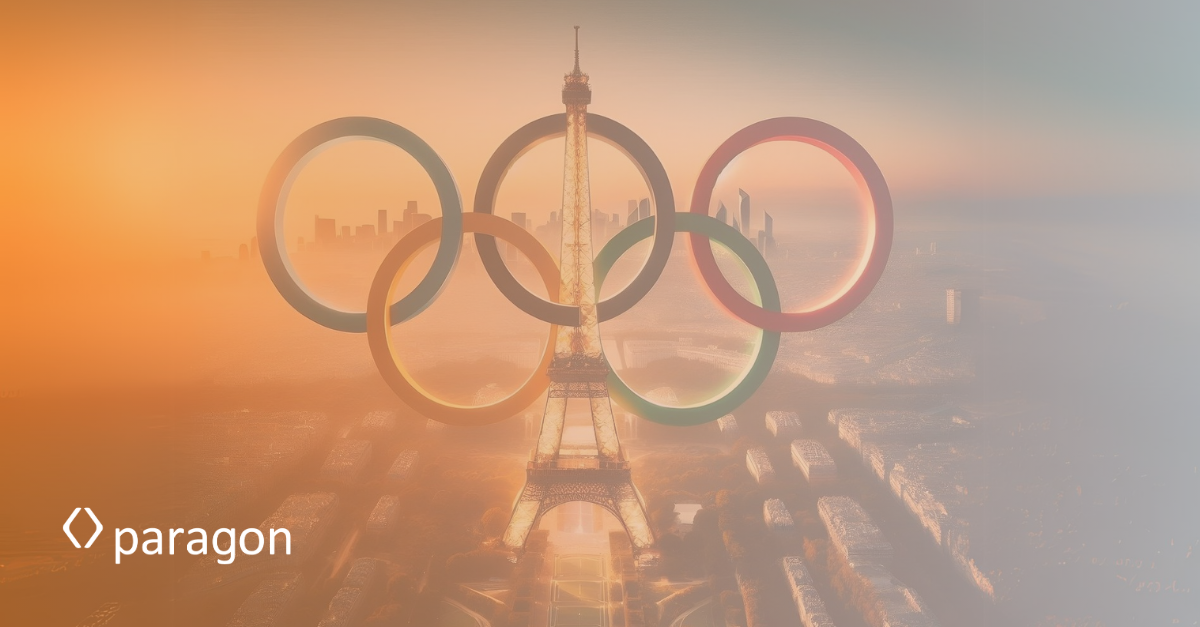The Olympics – a classic brand with a golden future
The American Noah Lyles won the Olympic 100m gold by millimetres in the most competitive final of all time. The spectacular finish – all eight men finished within 0.12secs of the gold medal – sums up modern sport: winning gets harder.
And the same is true in the race to sell sports rights. The world’s broadcasters are desperate to provide engaging content and are prepared to pay megabucks for the right content. However, they are also spoilt for choice. So it’s no surprise the Olympics – arguably the oldest brand in the world after launching in 776BC! – is upping its game to take on whippersnappers like basketball and football. Its marketing team has been training hard in pursuit of digital communications gold. To ensure the content is cutting edge, boffins are also working hard to exploit AI potential.
The digital strategy is already paying off. An estimated 8.6 million tickets have been sold for the physical events in Paris 2024 – from the triathlon swim in the Seine to beach volleyball under the Eiffel Tower – but the Olympics has more global ambitions. It wants to put the games at the centre of a digital ecosystem that spreads around the world. It targets 200m unique users on its website and app as well as 7.3bn digital engagements.
There are no medals for such an outstanding performance… just a serious boost to brand awareness. “The main objective of the IOC Digital Strategy is to promote athletes and sports, by growing digital engagement around the world, during and between the Olympic Games,” explains Yiannis Exarchos, CEO of Olympic Channel Services. “We want more people, spending more time, more often on our platforms. It is the best way to increase the value of the Olympic brand and of our digital ecosystem for the benefit of our stakeholders.”
And it’s going pretty well. In the year-long build-up to the Olympics, a vast amount of new content has been created. Up to 10 million unique users every month landed on olympics.com – double the figure for 2021, an Olympic Games year after the Covid delay – and 40 percent of them were under 34. Olympic social handles – all consolidated under @Olympics just before Tokyo 2020 – are buzzing. In June there were record-breaking 1.1bn engagements – three times the engagement before the Tokyo Games.
The Road to Paris 2024
Like any serious athletic training programme, success is down to careful planning, attention to detail, and, dedication. True, there were no endless laps of the track for ambitious marketers, but there were surely many marathon sessions in front of a metaphorical whiteboard. Their strategy? Instead of concentrating solely on the two-week-long extravaganza, they launched an umbrella campaign: ‛The Road to Paris 2024’.
In a way, it’s a classic brand extension. Long before the spotlight settled on Paris they started creating huge amounts of human interest content. Yes, elite performance is the USP of the Olympics, but we are all human beings together. We all have stories to tell.
One neat idea was to focus on the qualification stage, which led to the creation of content for more than 400 Olympic qualifier events. More than 195 live broadcasts – and 8,000 social media posts – told the dramatic stories of 11,000 athletes vying to reach the games. In short, they made their dreams come true.
The human interest stories sum up the entire Olympic movement. There is no doubt there is a new feel to the digital touchpoints at this year’s Olympics. Gold medals still dominate the limelight, but less so. The culture and character of the competitors are more important than before.
Other campaigns included the Refugee Olympic Team, the Olympic Torch Relay, the Olympic Esports Week, and the Let’s Move initiative.
“Athletes are at the heart of what we do, so our content has one goal: to strengthen the connections between the fans and athletes as they celebrate the joy of sport,” adds Exarchos. “Our storytelling is rooted in community, defined by inclusivity, and driven to give fans everything they need to know to truly savour Paris 2024. We are inspired by the intersection of sport and culture, where a new generation is ready to leave their mark.”
Paris 2024 and beyond
The next generation will also inhabit a world where sport looks and feels different. With artificial intelligence multicam replays can create a 360-degree view of the action while athlete tracking and enhanced data graphics can deliver a much more engaging digital experience. Similarly, an AI-assisted platform will automate highlight packages by catching key video moments from thousands of hours of competition.
“Today, we are not just envisioning the future; we’re actively creating it,” says Sarah Walker, an Olympic silver medallist in BMX and Chair of the IOC’s AI Working Group. “We are using the transformative power of AI to redefine the landscape of sports and bring the Olympic Movement into a new era. As an Olympian, I am excited by the transformative power of AI.”
The Olympic Games may have started three millennia ago but the brand is still going strong. The visionary Baron Pierre de Coubertin gave it a serious relaunch in 1896 but today the movement has its eye firmly on the next generation of athletes and fans. If you would like to talk to us about developing a strategy that will help propel your brand into the future, we would love to hear from you.



